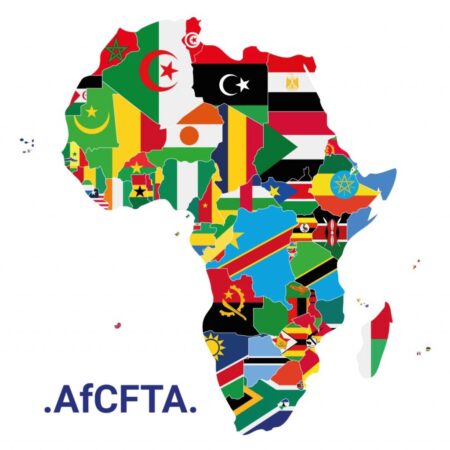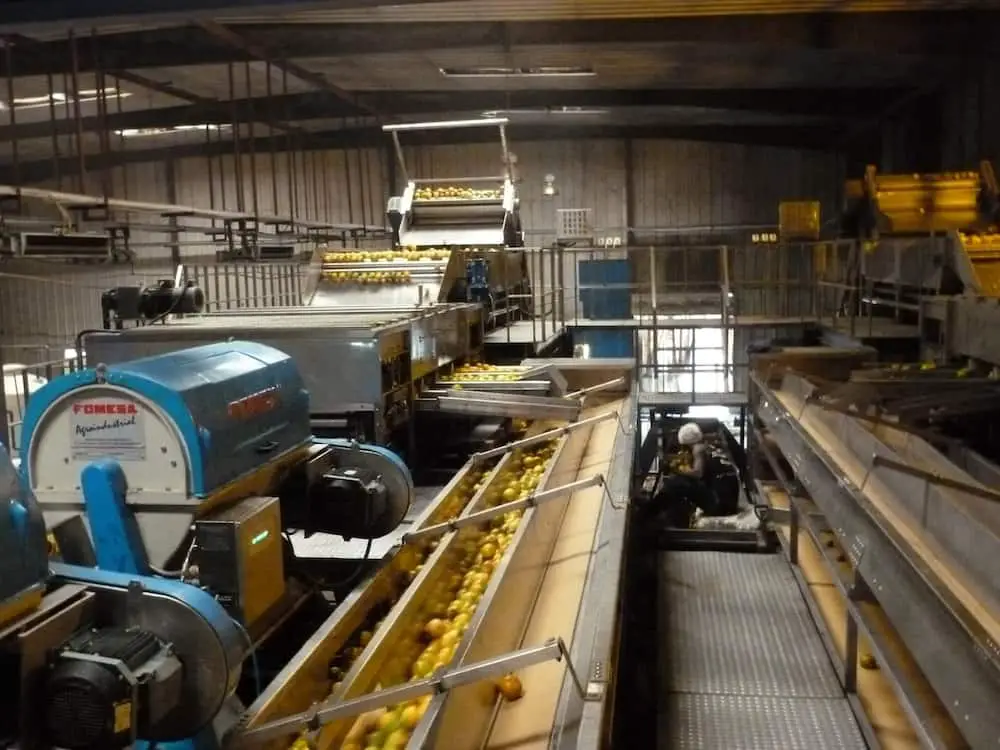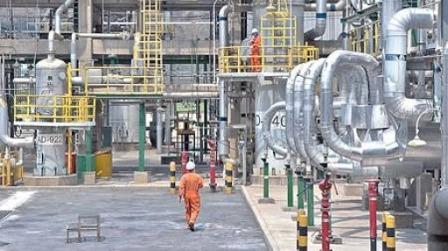- Africa’s new dawn: the rising role of digital and AI in agriculture
- Can Dangote Refinery Transform Africa Energy Ambition
- Gallup Survey: 80 per cent of Kenyan Workers Are Disengaged and Seek New Opportunities
- Madagascar Man Freed from 5KG Tumor After 15-Year Struggle
- How women in Africa are perceived and treated
- Sugar consumption in Kenya to Increase to 1.23 Million Tonnes
- Can Somalia and Turkey Oil deal Bring Change in Somaliland
- Remittances to Kenya dropped to $371.6 million in June, marking a six month low
Browsing: Development
The whereabouts of Joseph Kony, the infamous leader of the Lord’s Resistance Army (LRA), remains one of the most enduring mysteries in international justice and African politics. Despite extensive efforts to capture him, Kony continues to evade justice, with his exact location a subject of much speculation and few definitive answers.…
The African Continental Free Trade Area (AfCFTA) is now widely touted as the African Union’s (AU) most audacious project. The framework ties together the most significant number of member countries of any trade agreement since the World Trade Organisation (WTO) in 1995.
The AfCFTA had become topical even before its formal launch. Members of the business community eagerly awaited the full implementation of the AfCFTA. But two years since its formal launch, how far has the AfCFTA ushered in the ‘new era’ of African integration it promised?…
- The new partnership is aimed at creating quality jobs and boosting resilience to climate change.
- The strategy aims at improved resilience to climate change and reduced carbon emissions.
- Agreement will enhance the resilience and competitiveness of the private sector to create jobs.
The World Bank Group has announced a new five-year Country Partnership Framework (CPF) with Tunisia that supports the government’s development plan to expand the economy and tackle climate change. The new partnership aims at creating quality jobs, and boosting resilience to climate change.
The strategy was discussed with the World Bank Group’s Board of Directors and provides direction for the Bank Group to continue playing its role as a long-term partner of the country and its people.
Tunisia Vision 2035
“This new strategy provides the basis for the World Bank and Tunisia to accelerate programs to help unleash the country’s economic potential and foster a better future for …
- Financial technology has become an important support for the development of countries around the world.
- Digital technology, data resources, and intelligent technology can promote digitalization across the globe.
- At the global meet, experts provided insights on the opportunities and challenges of digital transformation in the financial sector within the Arab world.
Investors across the world are closely monitoring digital transformation, financial inclusion and sustainable finance trends in the Arab world. These revelations emerged as a top agenda during the just concluded Annual Investment Meeting (AIM) in Abu Dhabi, UAE.
Director and Advisor at the Secretary General Office–Union of Arab Banks Rajaa Kammouny highlighted the challenges banks within the Arab world are facing while calling for readiness to tackle future challenges.
Digital transformation in the Arab World
Under the Digital Transformation of Financial Sectors in the Arab World and the Role of Financial Technology in Economic Diversification discussion forum, experts offered …
Ghana competes in the global economy primarily using natural resources. Other than the usual exports of cocoa, gold, lumber, and crude oil, Ghana has a competitive advantage in numerous product categories. Increasing the proportion of high-income commodities in the export basket hastens economic transition.
The opportunity is providing better, economically advantageous items to regional and worldwide markets. Cocoa processing, wood processing, aluminium products, palm oil, food and agro-processing, and fish processing are examples of manufacturing sub-sectors that fit these two requirements.
Manufacturing subsectors that capture considerable proportions of manufacturing value-added, such as food and drinks, chemicals, and textiles, have significant technology, knowledge, and skills inherent in them. These assets can be used to produce additional goods within the sub-sector or even outside of it. It is also easier to go up the value chain after you have mastered relevant technologies and markets.…
IPv4 was the first version of IP to be used, and despite having been officially released in 1983, it is still the most widely used version to identify devices on a given network.
According to the CA report, with the imminent exhaustion of IPv4 address space, the length of IP addresses was increased from 32 bits to 128 bits, creating almost 340 undecillion addresses. The two address sets are not compatible, implying data sent using IPv4 address cannot be delivered to a recipient using IPv6 addresses.
The IPv6 was developed and standardized, as the next-generation Internet Protocol in 1996, with initial assignments for use in 1999, had the main goal of massively increasing the number of IP addresses available. Over the past year, major content providers and access networks have started offering IPv6 services to ordinary Internet users.…
President of Dangote Group, Aliko Dangote in his speech described the new plant as a game changer, as it can make Nigeria self-sufficient in fertilizer production, with spare capacity to export to other markets in Africa and the rest of the world.
While Dangote’s initial export targets were primarily Africa, current market realities mean there is increasing demand from outside the continent. Orders have come from far-flung places in the US, Brazil, Mexico, India, and the EU according to an article by African Business published on May 5, 2022.
According to the World Bank, the proximity of the new fertilizer plant offers a critical window of opportunity for Benin policymakers and the private sector to engage their Nigerian counterparts within the frameworks of the Economic Community of African States (ECOWAS), the African Continental Free Trade Agreement (AfCFTA) and other bilateral agreements to source fertilizer inputs for its farming population to …
If fully implemented, AfCFTA could speed up wage growth for women and lift 30 million people out of extreme poverty by 2035, the World Bank report has found.
An article by Namibia Economist, dated July 29, 2022, suggests that achieving these gains will be particularly important given the economic damage caused by the COVID-19 pandemic, which is expected to cause up to US$79 billion in output losses in Africa from 2020.
- Real income gains from full implementation of the AfCFTA agreement could increase by 7 per cent, or nearly US$450 billion by 2035.
- AfCFTA would significantly boost African trade, particularly intra-regional trade in manufacturing.
- Manufacturing exports would gain the most, 62 per cent overall, with intra-Africa trade increasing by 110 per cent and exports to the rest of the world rising by 46 per cent.
COVID-19 has caused major disruptions to trade across the continent, including critical goods such as …
There are increasingly more and more ‘outbreaks’ of non-communicable diseases in Africa and more so in sub-Saharan Africa.
These lifestyle ailments are ironically a symbol of increasing income among the population. As more and more African countries rise from low-income to middle-income status, statistics show a correlation with the rising number of people suffering from non-communicable diseases.
The reason is simple; when you rise in income, people do not increase their eating of the vitamin-rich greens they used to eat when they could not afford unhealthy but yet prestigious red meat; no, they change their diet to gabble up the ‘rich man’ foods, unwittingly damaging their health.
A local paper puts it into perspective; ‘People’s eating habits are shifting from food rich in starchy staples, vegetables and fruits to a more westernized diet high in sugar, saturated fats and oils’ the recipe for non-communicable diseases.
The troubling fact is that …
The most significant concern is Africa’s susceptibility to growing inflation in developed and developing economies, given the continent’s reliance on imports.…














